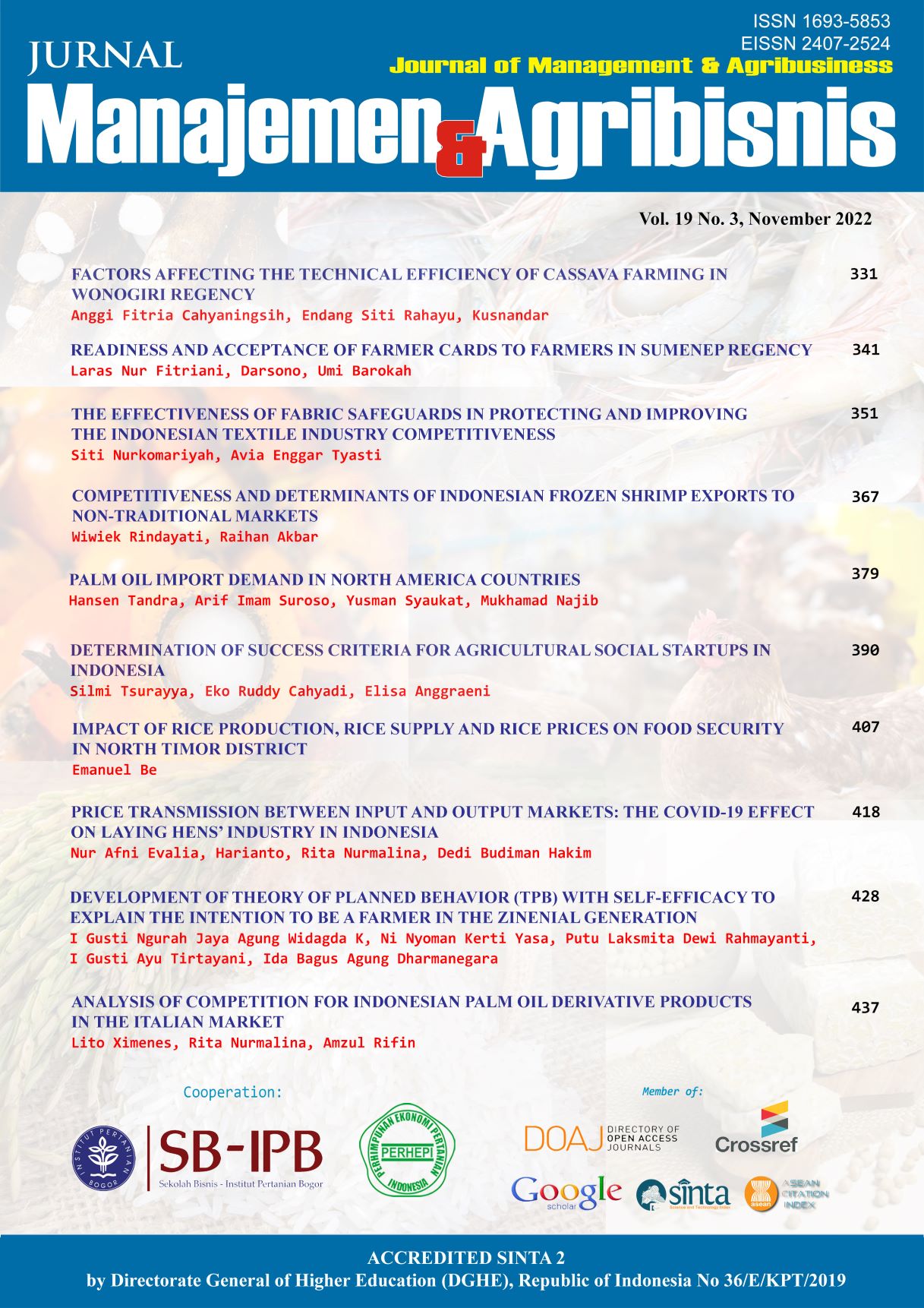Competitiveness and Determinants of Indonesian Frozen Shrimp Exports to Non-Traditional Markets
Abstract
Shrimp is an Indonesian fishery commodity with a high selling value in domestic and international markets. Frozen shrimp, as a type of shrimp exported from fishery products, has enormous potential to be developed as one of the mainstay commodities in the fisheries sector. However, Indonesia's frozen shrimp exports in the last five years have fluctuated and are still unable to compete with competing countries in exporting to main destination countries. Expanding the export market by looking at non-traditional markets as new destination markets to increase its exports again is necessary. This study analyses the competitiveness and determinants of Indonesian frozen shrimp exports to non-traditional markets. The research methods used are Revealed Comparative Advantage (RCA), Export Product Dynamic (EPD), X-Model to analyze the competitiveness and panel data regression to analyze determinants of Indonesian frozen shrimp exports to non-traditional markets. The results showed that Indonesian frozen shrimp are competitive in several non-traditional market destination countries. The estimation results in panel data regression show that the variables of real GDP per capita of the destination country, economic distance, export prices, actual exchange rates, population growth, and Logistic Performance Index (LPI) Indonesian and country of destination have a significant influence on Indonesia's frozen shrimp exports to non-markets traditional.
Keywords: EPD, frozen shrimp, non-traditional market, panel data regresion, RCA, X-Model
Authors
Authors who publish with this journal agree to the following terms:
- Authors retain copyright and grant the journal right of first publication with the work simultaneously licensed under a Creative Commons Attribution License that allows others to share the work with an acknowledgement of the work's authorship and initial publication in this journal.
- Authors are able to enter into separate, additional contractual arrangements for the non-exclusive distribution of the journal's published version of the work (e.g., post it to an institutional repository or publish it in a book), with an acknowledgement of its initial publication in this journal.
- Authors are permitted and encouraged to post their work online (e.g., in institutional repositories or on their website) prior to and during the submission process, as it can lead to productive exchanges, as well as earlier and greater citation of published work (See The Effect of Open Access).

